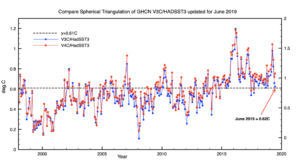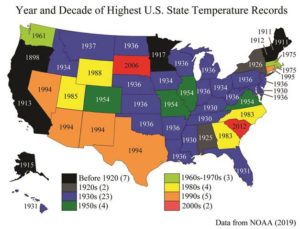by Chris Martz, July 27, 019 in ClimateChangeDispatch
It’s summer, temperatures are hot - sometimes record hot - and as usual, climate alarmism reaches record highs as climate activists have a field day with fearmongering rather than with facts and data.
Every week, various weather events end up getting caught in the spokes of the wheel of climate; it’s an endless cycle. Rinse, wash, repeat.
This time, it’s the [second] European heatwave this summer.
A Bit of Historical Perspective
While countries like the Netherlands, Germany, and Belgium have recorded their hottest temperatures on record this week, Paris’s record high of 108.7°F (42.6°C) on Thursday, July 25, made international headlines and consequently sparked climate insanity.¹
The graph below (Figure 1) shows the maximum temperature in Paris, France for each year since 1900.² As indicated by the red trendline, there has been a noticeable increase in the annual maximum temperature in Paris over the long run, however, the trend is not alarming.
Paris’s previous hottest temperature record stood for nearly 72 years.³
On July 28, 1947, the city reached 104.7°F (40.4°C).³ Paris’s high of 108.7°F (42.6°C) on Thursday broke the old record by 4°F (2.2°C), an incredible feat by any stretch of the imagination.
To break an all-time temperature record by 4°F in summer, let alone tie it, is extremely difficult to do, even with global warming.
…

…


